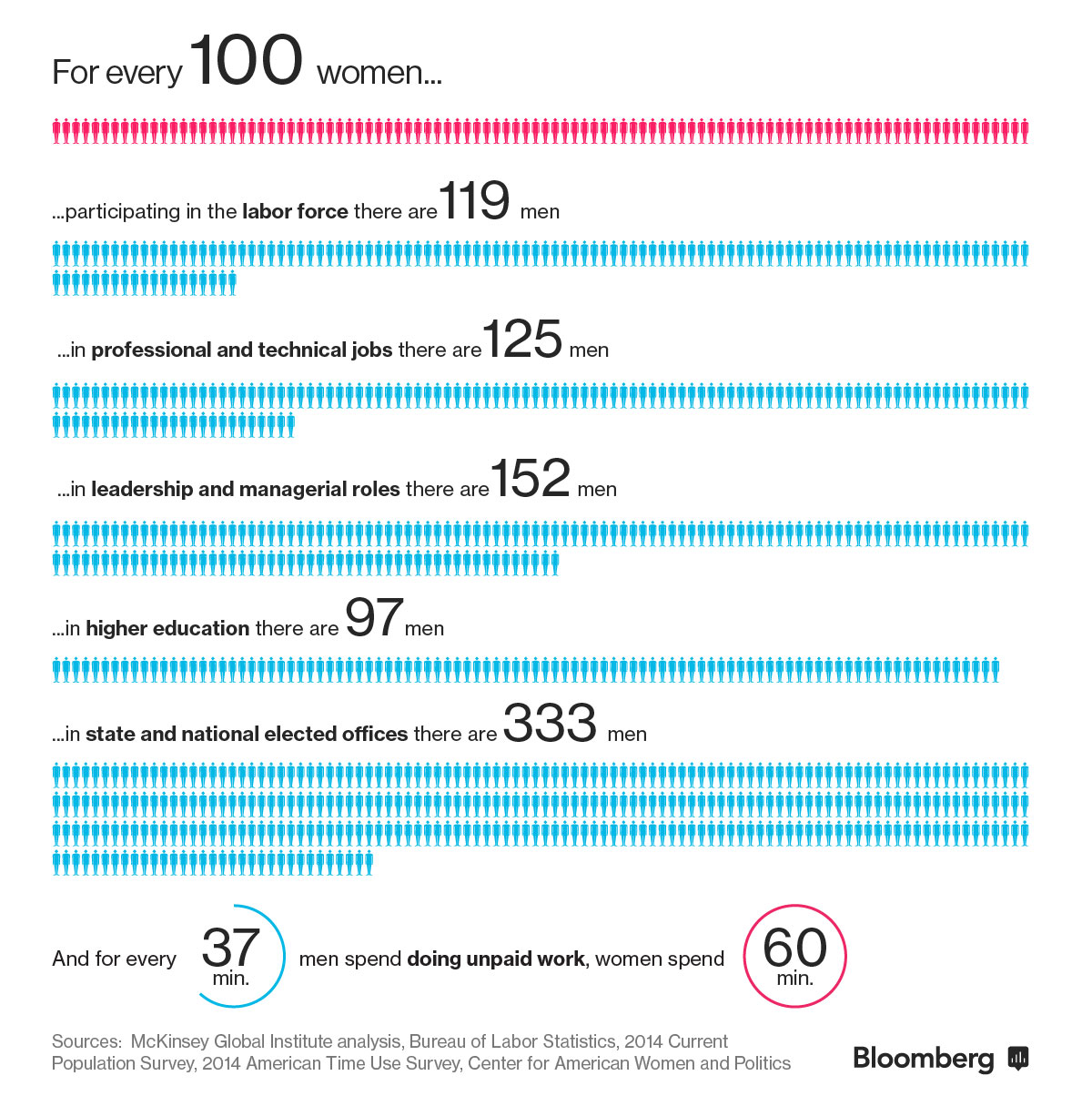Over the next 10 years, if we were to focus on the financial benefits of achieving gender equality and made the necessary changes in hiring, career growth, and compensation, we could end up “adding an economy the size of Texas to the U.S.”
That’s what Kweilin Ellingrud, a McKinsey Global Institute partner and the author of a new study, “The Power of Parity: Advancing Women’s Equality in the United States,” recently told Bloomberg TV. The point is not that we should level the playing field because it’s fair. The point is that we should add more than $2.1 trillion to the U.S. GDP.
Numerous studies show that businesses do better when women are present and active at all levels. Unfortunately, even if we intend to be fair and equitable, sexist beliefs are so entrenched in societal norms that it’s hard to see how we’re going to overcome them.

Who Gets the Dirty Jobs?
Here’s a recent example; please forgive the language, which is directly quoted. One morning a couple of weeks ago, I got into the elevator with two guys in their late 20s or early 30s who work in an office on my floor. They were having a heated discussion about one’s dissatisfaction about his recent assignments, which he saw as unfair, and decidedly unproductive for both his wallet and his self-satisfaction.
The other fellow responded, somewhat sagely, “That’s because you were on the shit list — so they gave you the bitch work.”
Trivial, routine, tedious, unrewarding, dirty work is often referred to in denigrating terms as “scut work.” And thankless, menial work is often called “grunt work.”
But “bitch work” is not just low — it’s denigrating to women because the term derives from being female. You can draw the inference.
Build Up People — and Profits
If there’s a societal expectation that the work that exists at the bottom of the barrel inherently belongs to women, then it’s going to be terrifically hard to bring women into greater full-time, professional, and executive status — even though that’s exactly what’s needed to build businesses as well as national and global economies.
Why not get everyone’s best work — regardless of gender — and recognize value wherever it exists, because that’s actually the profitable, high-quality thing to do? Of course there will be emotional blowback, creating a different set of problems, as you’ll see if you read the Guardian story on “the feminist cupcake sale that led to death and rape threats.”
But assuming that business decision-makers are willing to act in their own best interests as well as commit to the values of fairness and inclusion, there are all kinds of techniques to help level the playing field and raise organizational productivity and quality.
Close the Employment and Culture Gap
An Upworthy article from 2015 by Franchesca Ramsey, This Orchestra’s Blind Audition Proves Bias Sneaks in When You Least Expect It, gives one example. And in the Bloomberg interview, Ellingrud suggests techniques like using blind resumé screening to avoid unintentional bias during recruitment, and making work schedules and career paths more flexible.
These employment and HR practices are not enough, though. It will take creative assignments, attentive insight, and dedicated compassion before men like the ones I overheard in the elevator develop personal acceptance of the value that women bring to the workplace. And they’ll need significant exposure to real women that they respect before they’ll stop characterizing the work they don’t want to do as “women’s work,” which, incidentally, according to the proverb, is never done.
Onward and upward,
LK

